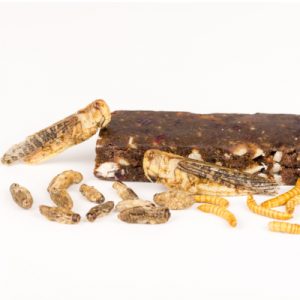When we think of insects, we think of creepy, crawly pests that make us want to pack our bags for the weekend when we find them indoors. Insects are part of the diet of many cultures worldwide, and research has shown that insects are packed full of protein and nutrients. To Westerners like us, the thought of chomping on a cricket sandwich or munching on termites like popcorn sounds gut-wrenching, but if we ever get over our cultural disgust for consuming insects, we would find that it comes with a host of benefits.
Insects Are Healthy to Eat
Insects aren’t just a great source of protein. According to the Food and Agricultural Organization of the United Nations, they are also rich in healthy fats, iron, calcium, and low in carbohydrates. A half-cup of crickets contains only 121 calories, 12.9 grams of protein, 5.5 grams of fat, and 5.1 grams of carbohydrates. As a comparison, a half-cup of ground beef contains 23.5 grams protein and 21.2 grams of fat. 
It Could Save the World
Currently, most western societies have a diet that consists mainly of meat. This high demand has added significantly to the amount of greenhouses gasses in the atmosphere. All those cows, pigs, and chicken farms take up a lot of room and have contributed significantly to deforestation in the Amazon.
Several studies have shown that insect farming could solve world hunger for a fraction of the amount of water and land used to raise the same amount of food. It also cuts the number of greenhouse emissions. Mealworm farming creates six to 13 times fewer greenhouse gasses than cattle and cricket farming. It also generates almost 90% fewer greenhouse gasses than chicken farms.
Less Food-Borne Diseases
If there were another type of food that risks spreading as many food-borne diseases as meat, we would have abandoned it long ago, but not meat. Illnesses such as H1N1, Mad Cow Disease, and now COVID-19 are just some of the severe diseases that are spread because of humans’ appetite for meat. Insects, on the other hand, are not known to spread any diseases after they are cooked.
It’s More Sustainable
With the world population ballooning and our taste for meat only increasing, the current trajectory is unsustainable. There are currently 1.468 billion head of cattle in the world versus ten quintillions (10 with eighteen zeros) insects. That’s more than enough food for everyone on the planet.
Switching to an insect diet is not only healthy, but it could also significantly reduce health issues related to a poor diet such as heart disease and obesity, a leading cause of death in the United States. Reducing the amount of meat we consume would also improve the environment by reducing the amount of farmland and the amount of food needed to feed livestock.
It’s All About Perception
We feel disgusted when we think of eating insects because we can’t get those images of buggy eyes, legs, or wings out of our heads. As more people catch on to edible bugs, some restaurants have come up with ways to disguise insects as other food. After all, when we eat a hamburger, we aren’t looking in a cow’s face, are we?
Call The Pest Control Experts at Cramer
If you have a pest infestation in your home and don’t have the stomach to solve the problem yourself, then call the professionals at Cramer Pest Control. We have years of experience dealing with pests of all shapes and sizes. If you have an active infestation or are looking to protect yourself from the worst pests, ask about our residential pest control program.
Is your commercial business infested with pests? With our Commercial Pest Control program, we can save your small business from being overrun with pests.
problem to get out of control. Call us now at (704) 763-0204 or (803) 802-7540 to get started. You can also contact us here for more information. Don’t forget to follow us on Facebook for the latest deals and check our blog for monthly pest control tips and tricks.
The Benefits of Adding Insects to Your Diet in North Carolina and South Carolina
Protecting North Carolina and South Carolina
